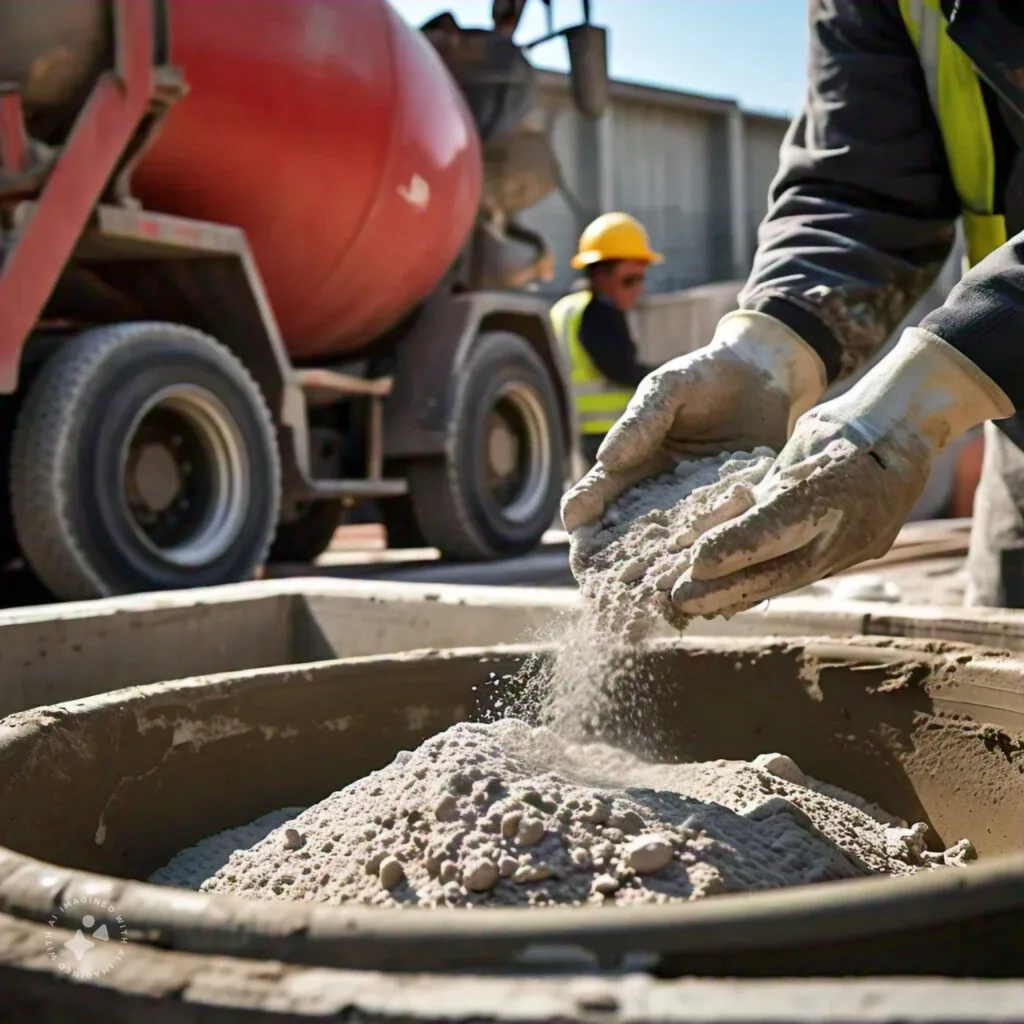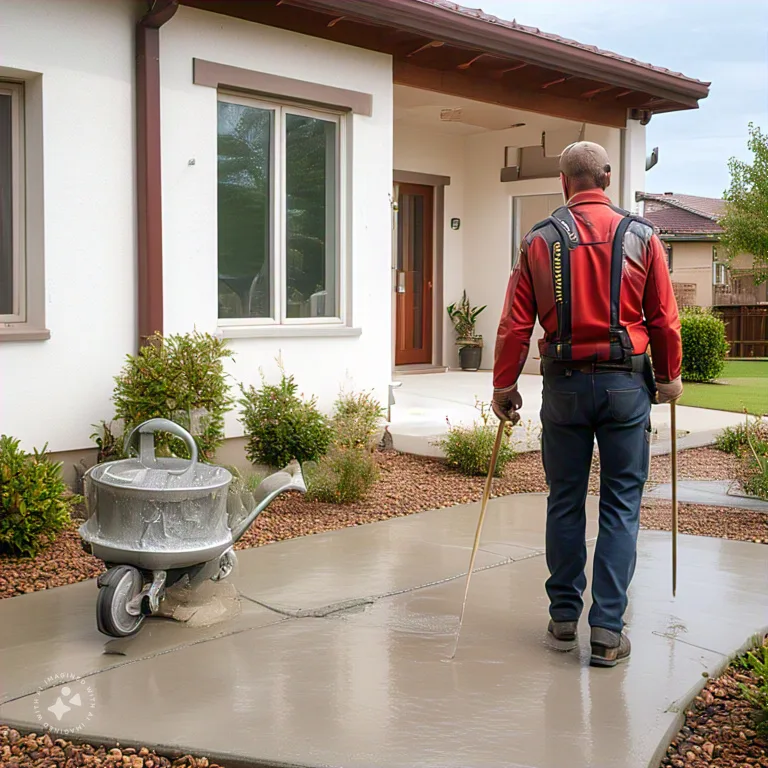Strong and durable, concrete is suited for virtually any exterior surface while being one of the most affordable building materials. It is a mixture of Portland cement, water, and aggregates such as sand, rock, or gravel. It does have limitations, but adding calcium chloride allows the mixture to set more quickly and increases its initial strength. For concrete contractors, it improves performance and reduces costs. Here we will discuss if calcium chloride is good for concrete. When should you put calcium chloride in concrete? And how much calcium should I put in concrete? So read on to learn more.
Contents:
- The Role of Calcium Chloride in Concrete
- Is Calcium Chloride Bad for Concrete in Any Way?
- Benefits of adding calcium to concrete
- How is Chloride Added
- Cross Construction Services: the best Concrete contractors in Houston
“The Role of Calcium Chloride in Concrete
Calcium chloride accelerates cement’s rate of hydration. A reduction in setting time helps protect freshly placed concrete. The effect is most noticeable in cool weather. Ready-mixed concrete sets more slowly at temperatures below 70 °F, and even more so between 30 °F and 50 °F. This means concrete construction can continue in the fall and winter, and contractors can still ensure quality work.
Here is a more detailed look at how calcium chloride in concrete enhances its quality:
Effects on Chemical Properties
Accelerated Heat of Hydration: When calcium chloride is present, the heat of hydration occurs at a faster rate, so concrete can hydrate in 10 to 12 hours. The total increase in hydration rate isn’t always substantial. It is more noticeable in temperatures below freezing, at which the free water content of fresh concrete is lowered faster
Control of Aggregate Swelling: Concrete can deteriorate due to aggregate swelling when high alkali cement is used with certain aggregates. Calcium chloride can further promote this reaction. However, if it must be used, low-alkali cement or a non-reactive aggregate is recommended.
Reduced Resistance to Sulphate Attack: Sulphates can react with calcium and aluminum ions, resulting in the formation of substances that disrupt the concrete. These include calcium sulfate and calcium sulphoaluminate hydrates. Calcium chloride can reduce resistance to this process.
Effects on Concrete
The addition of calcium chloride in concrete in residential and commercial applications has the following effects on its physical properties:
Setting Time: Adding calcium chloride in concrete can reduce its setting time by up to two-thirds. With a 2% admixture of chloride at a temperature of 50°F, set times attainable at 70°F without the additive can be achieved. Standards differ on the setting times of calcium chloride. Per the requirements of ASTM C494-1971 and CSA A266.2-1973, the initial setting time (when calcium chloride is used), should be accelerated by a minimum of 1 hour (The ASTM standard requires setting to be completed within 3½ hours, while the CSA standard requires it within 3 hours).
Water Cement Ratio: Calcium chloride can induce early stiffening of concrete, thereby reducing bleeding (water content rising to the top), but it does not reduce the quantity of water required to achieve a given slump or consistency. As far as the water-to-cement ratio, chloride does not have a significant impact on strengthening.
Freeze/Thaw Resistance: The rapid hardening of concrete provides early resistance to freeze/thaw damage. However, calcium chloride may leave matured concrete less resistant. Nonetheless, this property is significant during the winter when freshly laid concrete may be exposed to de-icing salts.
Air Entrainment: Less air entrainment agent is needed to produce more air content when calcium chloride is introduced. The chloride itself doesn’t cause entrainment of air.
Effects on the Mechanical Properties of Concrete
The primary mechanical impacts of calcium chloride include a gain in compression strength, especially at lower temperatures. It accelerates the hardening rate of concrete. The strength gained in the first three days may vary from 30% to 100%. However, concrete strength can decline if the amount is higher than acceptable standards.
Per ASTM C-494, an increase of at least 125% at three days over a control concrete sample is required. This is only 90% at six months to one year after installation.
Also, read:
- How Building Materials have evolved over Time
- How Long Should You Wait Before Sealing Your Concrete Driveway?
- Patio Coverings vs. Pergolas
- How concrete floors can benefit your business
- Why is building concrete driveways the better choice in hot climates
Is Calcium Chloride Bad for Concrete in Any Way?
In addition to reduced sulfate resistance and a boost in aggregate swelling, calcium chloride can increase dry shrinkage. The contraction of hardened concrete with the loss of water can cause cracking and warping. Calcium chloride is known to increase this process. How much depends on the type of cement, the amount of additive introduced, the curing period, and environmental conditions.
The accelerant can also trigger efflorescence. A whitish deposit can form on cured concrete surfaces in some cases, and it is not water-soluble. The deposit can be removed with diluted hydrochloric acid.
Calcium chloride can also cause corrosion of reinforcement steel. Steel is less protected when moisture penetrates the concrete, as it starts to carbonate and loses its alkalinity with exposure to air. The large surface area of the wires and greater stress differences contribute to corrosion as well.
Benefits of adding calcium to concrete
In summation, the advantages of adding calcium chloride to concrete on, for example, a residential concrete driveway include:The
- accelerated rate of set
- Increased initial strength
- Prevention of freeze damage
- Reduced bleeding
- Faster workaround time
- Reduced costs
- Improved workability
When calcium chloride is added, concrete can bear loads much sooner. It is also beneficial when used with fly ash. Replacing up to half of Portland cement with fly ash can increase costs, but adding the accelerator helps. However, it is a concern when calcium chloride accelerators are prohibited under such circumstances.
How is Chloride Added
Calcium chloride is available in many forms. It can be obtained in the form of pellets and other granules, while its flake form is also common. The flake form must consist of a driveway minimum of 77% calcium chloride; 3¼ pounds of granulated chloride must have at least 94% calcium chloride. Solutions are recommended because all forms of calcium chloride are soluble in water.
A solution should not be in direct contact with cement, as it will set more quickly. The recommended process is to dilute the solution in water and then mix it with aggregate.
Cross Construction Services: the best Concrete contractors in Houston
We are experienced and trusted commercial and residential concrete contractors in Houston, providing patios, sidewalks, parking lots, and concrete repair.
Concrete is a versatile material. For over 30 years, we have been committed to providing high-quality services and delivering projects on time and within budget to help our clients get the most from our concrete repair services. Minimizing disruption to homes and businesses is one of our top priorities.
Cross Construction Services is a premier concrete construction, inspection, and renewal company in your area. Call 713-254-1703 today to schedule a concrete repair in Houston or obtain a free estimate.


